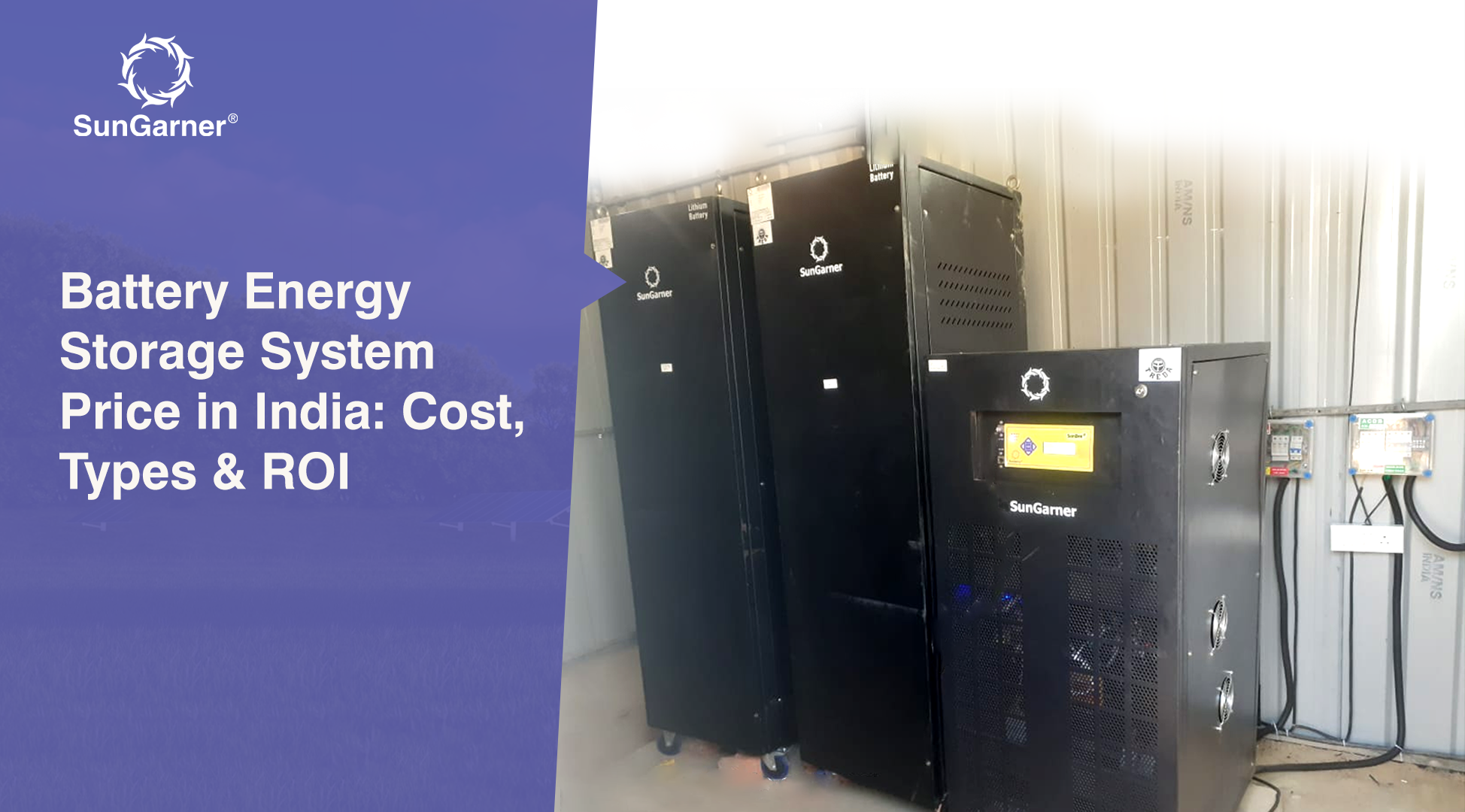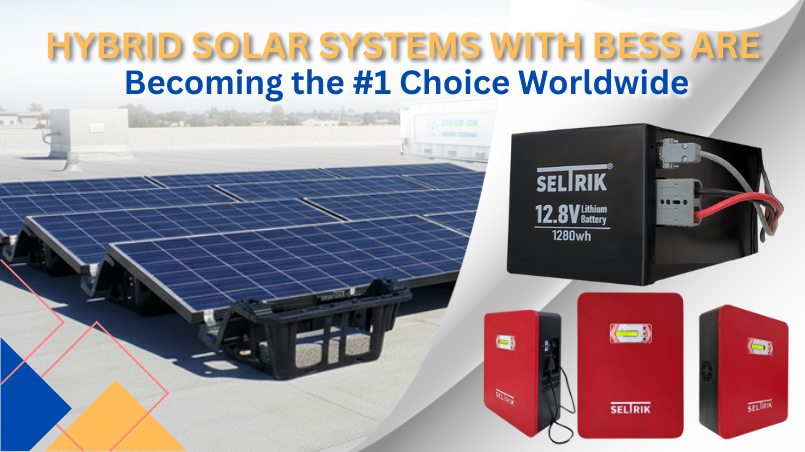Hybrid Solar System: The Perfect Balance Between Grid and Off-Grid
Hybrid solar systems provide an optimal blend of grid-tied and off-grid capabilities, offering homeowners and businesses an efficient, cost-effective, and sustainable power solution. These systems allow for energy independence while maintaining a reliable backup connection to the grid.
Hybrid solar systems provide an optimal blend of grid-tied and off-grid capabilities, offering homeowners and businesses an efficient, cost-effective, and sustainable power solution. These systems allow for energy independence while maintaining a reliable backup connection to the grid. If you are looking for a way to reduce electricity costs, ensure uninterrupted power, and contribute to a greener future, a hybrid solar system may be the ideal choice.
What is a Hybrid Solar System?
A hybrid solar system is an advanced energy solution that integrates solar panels, battery storage, and a grid connection. It captures sunlight to generate electricity, stores excess energy for later use, and seamlessly switches to the grid when needed. This setup ensures energy reliability without completely disconnecting from grid power, making it a practical and cost-effective option for residential and commercial use.
How Does a Hybrid Solar System Work?
A hybrid solar system operates through the following steps:
- Solar Energy Generation – Solar panels capture sunlight and convert it into electricity.
- Power Consumption – The generated electricity powers home appliances or business operations.
- Battery Storage – Excess energy is stored in batteries for nighttime or emergency use.
- Grid Support – If battery reserves deplete, the system draws power from the grid.
- Net Metering Benefits – Surplus energy can be fed back to the grid, potentially earning credits on electricity bills.
Why Choose a Hybrid Solar System?
1. Energy Independence
A hybrid system reduces reliance on the grid by utilizing stored solar power during outages or peak demand hours.
2. Reliable Backup Power
During blackouts or storms, the system automatically switches to battery storage, ensuring an uninterrupted power supply.
3. Lower Electricity Bills
By using stored solar energy during peak tariff hours, users can significantly reduce electricity costs.
4. Sustainable and Eco-Friendly
Hybrid solar systems help decrease carbon footprints by relying on renewable energy sources.
5. Best of Both Worlds
Combining grid-tied and off-grid functionalities, a hybrid system offers energy security and flexibility.
Key Components of a Hybrid Solar System
A hybrid solar system consists of several essential parts that contribute to its efficiency:
1. Solar Panels
Solar panels capture sunlight and convert it into electricity. Choosing the best solar panels for hybrid systems ensures optimal energy output and long-term performance.
2. Hybrid Inverter
The hybrid inverter efficiency plays a crucial role in managing the flow of electricity between solar panels, batteries, and the grid.
3. Battery Storage
Batteries store surplus energy, providing backup power during outages. SunGarner offers high-quality lead-acid and lithium-ion battery options tailored for hybrid systems.
4. Charge Controller
A charge controller prevents battery overcharging, prolonging battery life and optimizing performance.
5. Net Meter
With solar net metering benefits, users can send excess power back to the grid, earning credits and maximizing savings.
How to Choose the Right Hybrid Solar System
Selecting the right hybrid solar system depends on several factors:
- Daily Power Consumption – Determine the required solar panel capacity based on electricity usage.
- Battery Storage Capacity – Choose a battery size that meets energy needs during outages.
- Quality of Components – Invest in durable, high-efficiency solar panels, inverters, and batteries.
- Installation and Maintenance – Partner with a trusted provider like SunGarner for professional installation and ongoing support.
Hybrid vs. Grid-Tied vs. Off-Grid Systems
|
Feature |
Hybrid Solar System |
Grid-Tied System |
Off-Grid System |
|
Grid Connectivity |
Yes |
Yes |
No |
|
Battery Storage |
Yes |
No |
Yes |
|
Backup Power |
Yes |
No |
Yes |
|
Cost Savings |
High |
Medium |
High |
|
Energy Independence |
Medium |
Low |
High |
A hybrid solar system offers the flexibility of staying connected to the grid while benefiting from battery backup for added security and savings.
Government Incentives and Policies
In India, hybrid solar system users may be eligible for subsidies and incentives under the MNRE (Ministry of New and Renewable Energy). Some state governments provide additional incentives for net metering and battery storage solutions. Checking with local authorities for available schemes can further reduce the overall cost of installation.
Common Questions About Hybrid Solar Systems
1. How much battery capacity do I need?
Battery size depends on daily electricity consumption and backup duration requirements. A professional assessment can determine the right capacity.
2. Can I retrofit my existing solar system to a hybrid setup?
Yes, an existing grid-tied solar system can be upgraded to a hybrid system by adding battery storage and a compatible hybrid inverter.
3. What is the lifespan of a hybrid solar system?
High-quality solar panels last 25+ years, while lithium-ion batteries typically last 8-15 years with proper maintenance.
Final Thoughts
A hybrid solar system is an ideal solution for those looking to optimize energy savings, maintain a reliable power backup, and reduce dependency on the grid. With SunGarner’s expertise and high-quality solar solutions, transitioning to renewable energy has never been easier. Investing in a hybrid solar system today can pave the way for a smarter, more sustainable future









